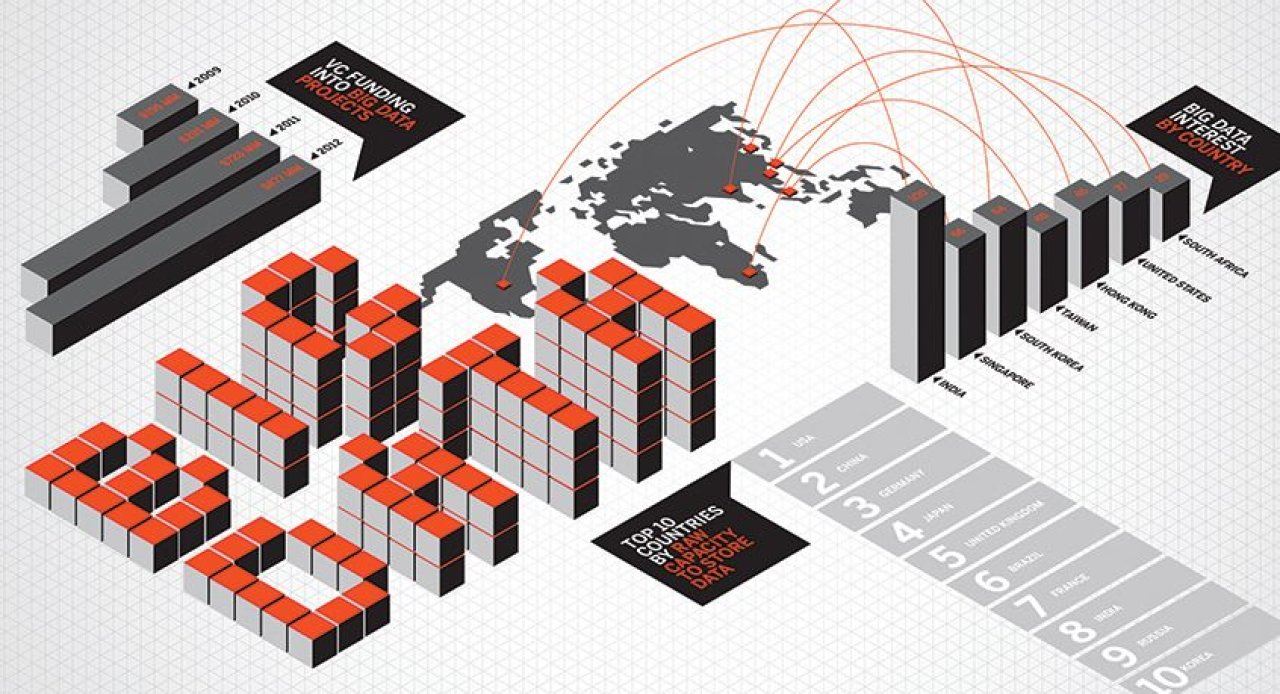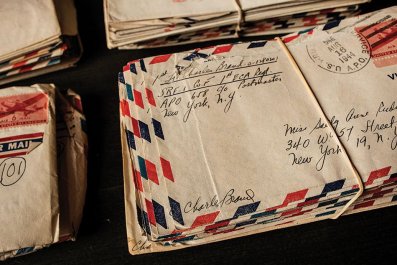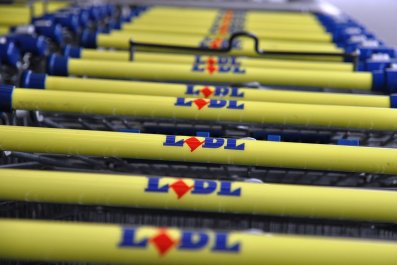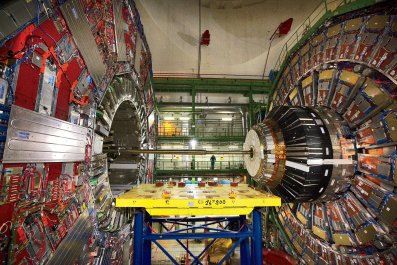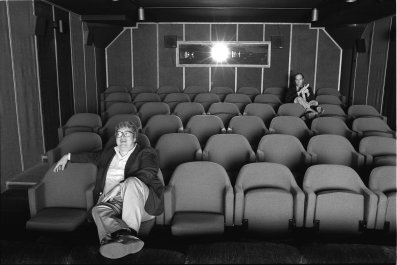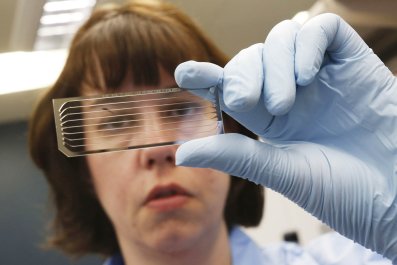In the next few years, the term "big data" will come to seem naive, like when "information superhighway" gave way to "the Internet" in 1995.
We're entering an age of personal big data, and its impact on our lives will surpass that of the Internet. Data will answer questions we could never before answer with certainty—everyday questions like whether that dress actually makes you look fat, or profound questions about precisely how long you will live.
Every 20 years or so, a powerful technology moves from the realm of backroom expertise and into the hands of the masses. In the late-1970s, computing made that transition—from mainframes in glass-enclosed rooms to personal computers on desks. In the late 1990s, the first web browsers made networks, which had been for science labs and the military, accessible to any of us, giving birth to the modern Internet.
Each transition touched off an explosion of innovation and reshaped work and leisure. In 1975, 50,000 PCs were in use worldwide. Twenty years later: 225 million. The number of Internet users in 1995 hit 16 million. Today it's more than 3 billion. In much of the world, it's hard to imagine life without constant access to both computing and networks.
The 2010s will be the coming-out party for data. Gathering, accessing and gleaning insights from vast and deep data has been a capability locked inside enterprises long enough. Cloud computing and mobile devices now make it possible to stand in a bathroom line at a baseball game while tapping into massive computing power and databases. On the other end, connected devices such as the Nest thermostat or Fitbit health monitor and apps on smartphones increasingly collect new kinds of information about everyday personal actions and habits, turning it into data about ourselves.
That the world is awash in data may be as obvious as saying Lady Gaga dresses funny. But the game changer ushering in the new era is the ability to make sense of data in ways that let non-tech humans interact with it, learn from it and use it.
More than 80 percent of data today is unstructured: tangles of YouTube videos, news stories, academic papers, social network comments. Unstructured data has been almost impossible to search for, analyze and mix with other data. A new generation of computers—cognitive computing systems that learn from data—will read tweets or e-books or watch video, and comprehend its content. Somewhat like brains, these systems can link diverse bits of data to come up with real answers, not just search results.
Such systems can work in natural language. The progenitor is the IBM Watson computer that won on Jeopardy in 2011. Next-generation Watsons will work like a super-powered Google. (Google today is a data-searching wimp compared with what's coming.)
Sports offers a glimpse into the data age. Last season the NBA installed in every arena technology that can "watch" a game and record, in 48 minutes of action, more than 4 million data points about every movement and shot. That alone could yield new insights for NBA coaches, such as which group of five players most efficiently passes the ball around.
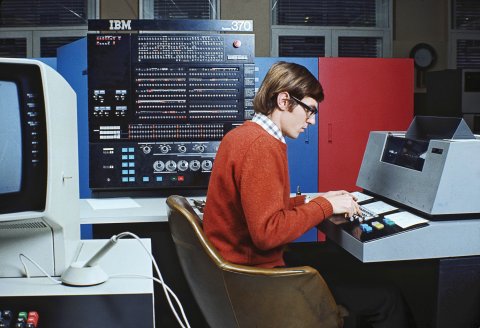
But add that, for instance, to a sensor-infused basketball made by 94Fifty that tracks the ball's arc and spin of every shot, analyzes the data and sends results to a phone app. Mash that up with data about brain waves, heart rate, sweat and other bio readings gleaned from a Fitbit-like gadget. Now a player could start to figure out exactly what he does in every respect when he performs at his peak, and can try to re-create it in every game.
Before long, that kind of data and analysis will trickle down to the mass-market level, just as it did with computing and the Internet. In another decade, your kid's school team will have the same kind of data and will consider it routine.
In the restaurant industry, "we're at this interesting inflection point in big data and food," says Justin Massa, CEO of restaurant data startup Food Genius. "It's inevitable. It's going to happen. We're building the technology now, knowing the data is going to come."
Data about eating is being generated by menus on websites, reservations on OpenTable, inventory systems in restaurants, reviews on Yelp and GPS location pings from cellphones. The data will let us know things we never knew we could know. Give it a couple of years and someone opening a restaurant will be able to tap data to determine the ideal menu to attract the right demographic in that neighborhood. A cross-analysis of data about human taste and food chemistry could suggest a house specialty no one ever thought of before, like Swiss Thai fusion asparagus quiche, a dish that a computer recently created.
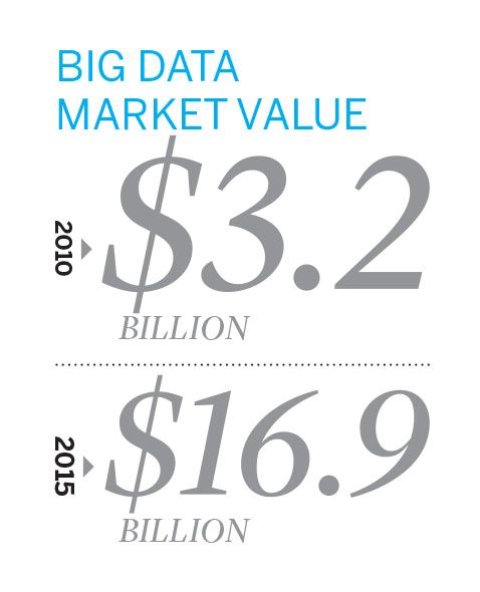
3-D printing is turning physical objects into data. At Shapeways, products on the website exist as nothing but digital designs until ordered by a customer. The product then gets constructed on an industrial 3-D printer and shipped. As objects become data, we can know more about them and easily personalize them—every person will be able to customize his or her shoes or furniture. "We'll have a world of entirely bespoke items," says futurist Paul Saffo.
Cognitive computers are getting good at gleaning data from video—identifying objects, tracking movements, even watching facial expressions to determine moods. A coming app could use video to collect data about your appearance and run an image through algorithms to give you an honest opinion about the way that outfit looks on you, saving your spouse from answering the question.
Biosensors that are no more intrusive than a temporary tattoo will soon feed streams of data about your physical condition to a phone app that connects with mega-computers through the cloud. You'll get hard information about whether a medication is working. In fact, next-generation pills will come with a prescribed app that tracks effectiveness and reports back to you.
As millions of people wear biosensors, they'll generate unbelievable amounts of anonymized data about health, fitness, disease and longevity—monstrous troves of information that will fuel breakthrough insights about the body. In the data age, we'll all be able to gather our personal data and use it to query the large pools of information to learn specifically about ourselves. One of the questions you might ask is: When will I die? The system could tell you a date, based on current habits, and show you how changing certain habits would alter that date.
Think again about life before personal computing and the Internet. Even if someone told you that you'd eventually carry a computer in your pocket that was always connected to global networks, you would've had a hard time imagining what that meant—imagining WhatsApp, Siri, Pandora, Uber, Evernote, Tinder.
As data about everything becomes ubiquitous and democratized, layered on top of computing and networks, it will touch off the most spectacular technology explosion yet. We can see the early stages now. "Big data" doesn't even begin to describe the enormity of what's coming next.



